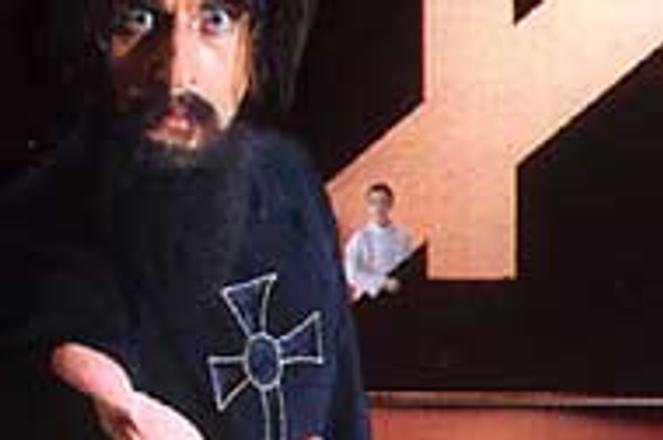THE PREMIERE of the ballet is January 24.photo: Courtesy of SND
GRIGORY Rasputin is undoubtedly one of the most scandalous figures in Russian history. Born around 1869 in Siberia, his miraculous healing powers won him an influential position in aristocratic circles, and his ability to remain there, despite his widely publicised drinking and womanising, made him a personality extolled by some and cursed by others.
The story about this controversial Russian fascinated the Slovak choreographer Ján Ďurovčík's creative team. Their fascination has resulted in an entirely Slovak work, with original libretto, music, and choreography. The ballet Rasputin will premiere on January 24, just after the annual Philip Morris Ballet Flower Awards are announced. The public premiere will be on January 25.
"It is every artist's dream to create a work that he can leave behind," says Ďurovčík, 31, who is behind most aspects of the ballet - he is the ballet's director, choreographer, and librettist.
Ďurovčík's original work is a demonstration that the Slovak National Theatre (SND) Ballet is not afraid to offer space to contemporary artists right alongside ballet's historical greats. In the 2003-2004 season the SND plans to present two other new works by Slovak choreographers.
"It's a risk to present a new work because visitors don't have to accept it. It is easier with a work that is based on a well-known epic story, as this can help attract people to the theatre. But each new work is always a risk," says the director of the SND Ballet, Emil T. Bartko. In 1989, when he came to the theatre he stated that he would create new opportunities for local composers.
The theatre has never before presented a Slovak work as original as the ballet Rasputin. Most of the artists behind the ballet have worked at the SND before, apart from music composer Henrich Leško, who is mostly known for his musicals.
The sets, which are the work of Boris Kudlička, are unconventional. The designer has played more with colour and scale than is usual, using symbols typical for that period - for example, crosses - but making their contours both bigger and smaller than normal. "It is a philosophical matter, same as with Rasputin, because God knows if he was a big man or a big liar," says Ďurovčík.
He warns, though, that the themes portrayed in this ballet might not be clear to German and American audiences. They might have a hard time understanding the Slavic phenomena of blind faith, central to the piece, which is so typical in this environment.
"A [Slovak] person can easily identify with it and understand the mentality of the characters. Just look at Mečiar, whose era is only finishing now. He is like Rasputin, a saviour on the one hand, a cheater and liar on the other," he adds.
Apart from the January 25 premiere, performances are on January 30 and February 19. They all start at 19:00, in the Slovak National Theatre on Hviezdoslavovo námestie 1. Tickets cost Sk50-150 (premiere), Sk50-120 (other times) and are on sale at the theatre's box office on Komenského námestie. Tel: 02/5443-3890.


